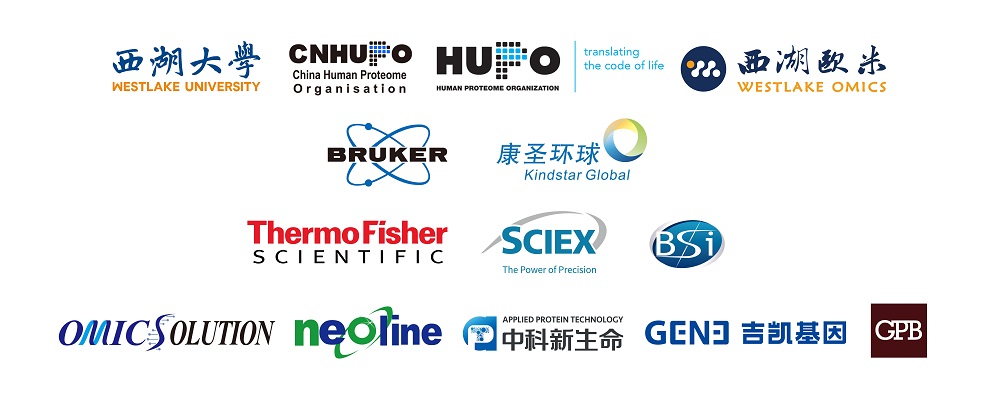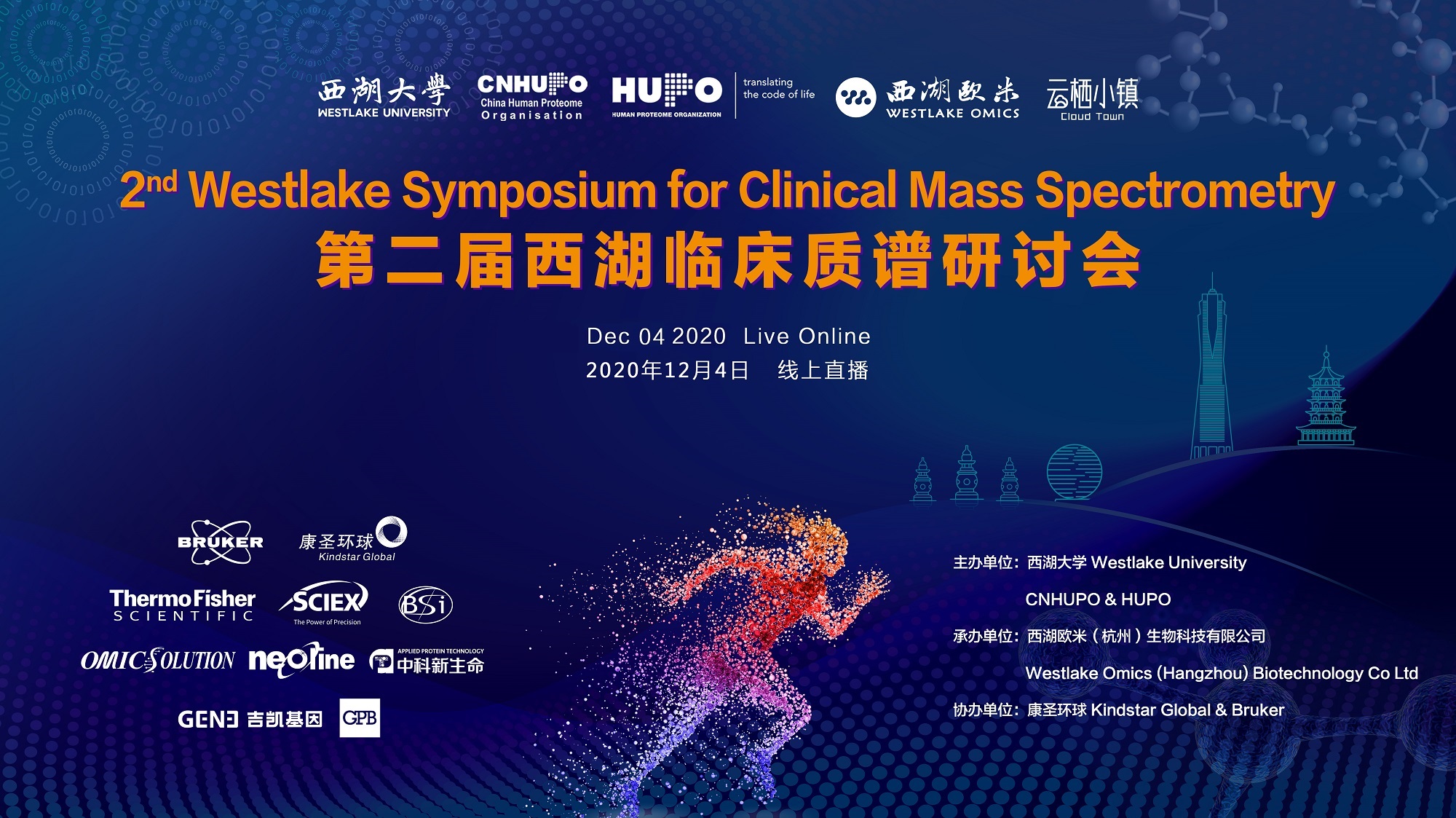
Progresses and Perspectives of
Mass Spectrometry-based Clinical Proteomics
基于质谱的临床蛋白质组学的研究进展与展望
Co-chairs: Stephen Pennington, Fuchu He and Tiannan Guo
Supported by Westlake University, CNHUPO, HUPO
When: 04 Dec, 2020, 09:00-23:00 (UTC+8)
Where: Playbacks
Summary
The rapidly developing mass spectrometry-based proteomics is indispensable for precision medicine. However, its penetration into clinic has yet to prevail. One technical bottleneck is high throughput proteomic analysis of clinical specimens from (multi-center) cohort studies, whereas integrative analysis of proteomics data with clinical and other omics data poses another technical challenge. Moreover, the comprehension of the unmet clinical needs by the mass spectrometrists, and the understanding of the progresses and limitations of cutting-edge proteomic techniques by the clinicians are non-trivial. This symposium gathers experts from clinical medicine, proteomics and beyond, with a goal of building a complete picture of the MS-based clinical proteomics: the current status and the perspective for future development.
Speakers
Coordinators
Online Participants
Hours
Speakers and coordinators
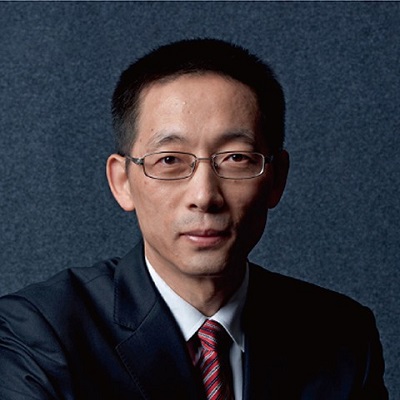
Yigong Shi 施一公
Westlake Universisty, 西湖大学
Ph.D.Principal Investigator, School of Life Sciences, Structural biology of cancer, with a focus on key regulatory components in the apoptotic pathways and other important cellular processe. Structural biology of important membrane proteins.Structural mechanisms of macromolecular machineries.

Ruedi Aebersold
ETH Zurich, Switzerland
Ruedi Aebersold is a Swiss and Canadian scientist trained at the Biocenter, University of Basel. He completed his Postdoctoral training at Caltech. He is a Professor at ETH Zurich and the University of Zurich. He was on the faculties of the Universities of British Columbia and Washington and co-founded, with Lee Hood and Alan Aderem, the Institute for Systems Biology in Seattle. He is on the SAB of a number of research organizations and has served as senior editor for Molecular and Cellular Proteomics and Molecular Systems Biology. He was elected as EMBO member in 2006.The research focus of his group is the proteome. The group has pioneered several widely used techniques and generated a range of open access/open source software and statistical tools that have contributed to making proteomic research results more transparent and accurate. The work has been recognized with numerous awards and prizes. More than 40 trainees of the group have reached faculty status at leading research institutions worldwide.
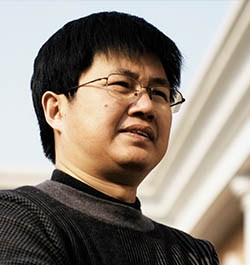
Fuchu He 贺福初
National Center for Protein Sciences, Beijing, 国家蛋白质科学中心(北京)
Dr. He is the leading scientist studying proteomics in China. He was the founder of CNHUPO and among the first group of people who founded HUPO in 2001. He was the first Chinese scientist who led an international consortium-Human Liver Proteome Project (HLPP), and the founder of Beijing Proteome Research Center, Phoenix Center (proteomics) and Institutes of Biomedical Sciences Fudan University. As the chief scientist, he has been propelling HLPP to the China Human Proteome Project (CNHPP), to create an encyclopedia of proteins in the human body under physiological and pathological conditions. Recently, his team stratified early hepatocarcinoma (HCC) into 3 proteomic subtypes with different clinical outcome. Some drug targetable proteins have been demonstrated useful in identifying patients with HCC who could potentially benefit from targeted treatment in further clinical trials. These studies demonstrated the proteomic analysis as an independent powerful tool in cancer molecular subtyping, indicating that the era of “Proteome Driven Precision Medicine (PDPM)” is coming.
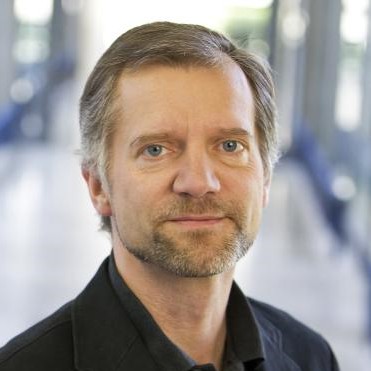
Matthias Mann
Max Planck Institute, Germany
Matthias Mann studied physics and mathematics at Göttingen University and obtained his Ph.D. in chemical engineering at Yale, contributing to the Nobel Prize for his supervisor John Fenn for electrospray ionization. Since 2005 he is director at the Max Planck Institute of Biochemistry, Munich and since 2009 also director of the Department of Proteomics, Novo Nordisk Foundation Center for Protein Research at the University of Copenhagen. He has obtained numerous prizes and is one of the most cited scientists with an h-factor of 232 and 250,000 total citations (Google Scholar). His work in sample preparation, chromatography, mass spectrometry and computer algorithms has been decisive in making mass spectrometry applicable to molecular biology. Apart from proteomics technology development his team works on fundamental cell and systems biological questions. Today they focus on clinically relevant topics, especially the analysis of the blood plasma proteome and cancer tissues at the single cell level.

Jun Qin 秦钧
National Center for Protein Sciences, Beijing, 国家蛋白质科学中心(北京)
Jun Qin is among the few people in the world, who can integrate MS instrument design, proteomic method development, bioinformatics, biology and clinical applications into one research program.
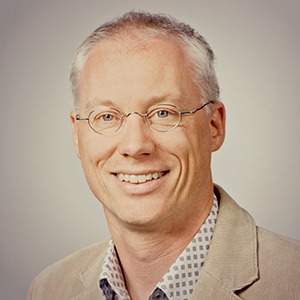
Bernhard Küster
Technische Universität Muenchen, Germany
Chair of Proteomics and Bioanalytics Technical University of Munich.Bernhard Kuster is a chemist by training and obtained is PhD in Biochemistry from the University of Oxford. He went on to do a PostDoc funded by an EMBO long-term fellowship at the EMBL in Heidelberg and the University of Southern Denmark in Odense. After seven years as VP Analytical Sciences and Informatics at the biotech firm Cellzome (now GSK), he became full professor of Proteomics at the Technical University of Munich in 2007. Bernhard currently serves as Vice Dean Information Management of the TUM School of Life Sciences, is the Director of the Bavarian Biomolecular Mass Spectrometry Center and a Carl von Linde Senior Fellow of the TUM Institute for Advanced Study. Bernhard’s research focuses on mass spectrometry based proteomics and its application to chemical and systems biology. He is particularly interested in i) which genes of an organism exist as proteins, where they are expressed and in which quantities, ii) how drugs interact with proteins, signaling pathways and cellular systems in order to understand their often multiple modes of action and iii) developing methods and tools to study proteomes. Bernhard has published over 200 papers on proteomics and bioinformatics that have been cited >30,000 times.
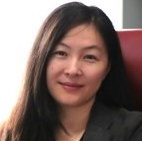
Catherine Wong 黄超兰
Peking University, 北京大学
Director, Center for Precision Medicine Multi-Omics Research, Peking University Health Science Center. Principal Investigator, Center for Life Sciences, Peking Unversity & Tsinghua University Associate Professor with Tenure, School of Basic Medical Sciences, Peking University Health Science Center Principal Investigator, State Key Laboratory of Natural and Biomimetic Drugs, Peking University Health Science Center Honorary Professorship, Faculty of Biology, Medicine and Health, The University of Manchester The Introduction of Outstanding Talents for Technology, Chinese Academy of Sciences Committee Member of Center for Transformation of Scientific and Technological Achievements, Peking University Health Science Center Committee Member of Protein Society, The Chinese Society of Biochemistry and Molecular Biology Chairman Member of Committee of Experimental Medicine (Mass Spectrometry), National Association of Health Industry and Enterprise Management Committee Member of China Human Proteome Organisation
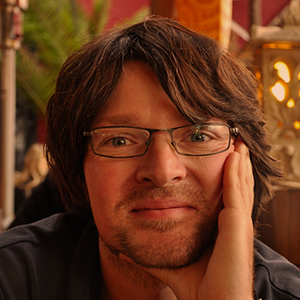
Markus Ralser
Charite University Medicine, Germany
Markus Ralser (*1980), Prof. Dr Mag, Einstein Professor of Biochemistry, is Head of the Dept. of Biochemistry at the Charitè University Medicine (the joint medical faculty of Humboldt and Free state Universities in Berlin, Germany) while being a Senior Group Leader at the Francis Crick Institute (London).Previously, he was a Group leader at the Department of Biochemistry, University of Cambridge, a positionhe took after being trained in mass spectrometry at VU Amsterdam (Netherlands), and being a Junior group at the Max Planck Institute for Molecular Genetics (Berlin). The Ralser lab is known for fundamental discoveries that have improved our understanding of how cells can coordinate hundreds of biochemical reactions assembled in the metabolic network, and for the development of high-throughput mass spectrometry technologies. Major publications from the Ralser lab have linked each yeast gene to its role in metabolism, have shown that metabolism is much more flexible and integrated into the physiology of cells as it was expected only a few years ago. Moreover, results obtained in the Ralser lab have provided fundamental insights on how central carbon metabolism could have evolved in early life forms, how reactions can co-occur within a cell despite competing chemistries, and how yeast and cancer cells reconfigure metabolism to be protected against oxidative stress. The Ralser lab is/has been the recipient of substantial funding by The Crick, the Wellcome Trust, the ERC, EMBO, the BMBF (Germany), the Max Planck Society and the BBSRC. He was selected into the EMBO Young investigator programme, he is a Wellcome Trust Beit fellow, and he is a recipient of the 2008 BioMed central Research Award, the 2017 Colworth Medal of the Biochemical Society, the 2019 Starling Medal of the Endocrinological Society. and the 2020 EMBO Gold medal.
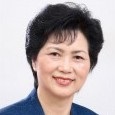
Lanjuan Li 李兰娟
Zhejiang University, 浙江大学
Professor Lanjuan Li is a member of Chinese Academy of Engineering, and Professor/Chief Physician of Infectious Diseases, the 1st Affiliated Hospital, Zhejiang University. She also serves as the director of the State Key Laboratory for Diagnosis and Treatment of Infectious Diseases Diagnosis and Treatment, the director of Collaborative Innovation Center for Diagnosis and Treatment of Infectious Diseases. She has been engaged in clinical, teaching and research work of infectious diseases for about 40 years and served as editor-in-chief for 33 books, publishing more than 400 high-level international peer-reviewed articles (including Nature, Lancet and New England Journal of Medicine).
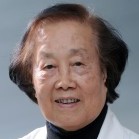
Shu Zheng 郑树
Zhejiang University, 浙江大学
The professor of Medicine department of Zhejiang University, and doctoral supervisor·The deputy director of the Development Committee of Zhejiang University·Director of the Cancer Institute Academic Committee of Zhejiang University=·Vice president of Chinese Anti-Cancer Association·Chairman of the Professional Committee of the National Colorectal Cancer·Executive director of the Chinese Medical Association
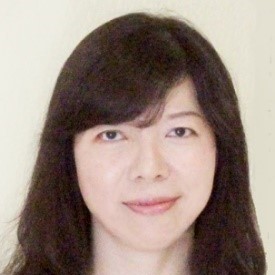
Yu-Ju, Chen
Academia Sinica
B.S., 1992, National Taiwan University. Ph.D., 1997, Iowa State University. Postdoctoral Research Fellow, 1997, Ames Laboratory; 1998-1999, National Tsing-Hua University. Assistant Research Fellow, 1999-2005; Associate Research Fellow, 2005-2010; Research Fellow, 2010-2019; Distinguished Research Fellow, 2019-present; Director, 2013-2019, Institute of Chemistry; Acting Director, 2019-present, Institute of Chemistry; Adjunct Research Fellow, 2004-present, Genomic Research Center, Academia Sinica. President, 2009-2011, Taiwan Proteomics Society. Editorial Board Member, 2008-present, European Journal of Mass Spectrometry. Council Member, 2009-present, AOHUPO.
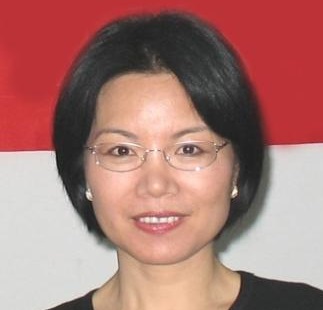
Ruiping Xiao 肖瑞平
Peking University, NEJM
Dr. Xiao has made important discoveries in beta-adrenergic receptor (AR) subtype signaling, with an emphasis on translating bench discoveries to the bedside. She was the first to show that beta2-AR dually couples to Gs and Gi, revealing a new signaling paradigm of the G protein-coupled receptor superfamily. While chronic beta1-AR stimulation causes heart cell death and cardiomyopathy by Ca2+/calmodulin kinase II-dependent pathways, beta2-AR is cardiac protective. She co-invented the Gs-biased, chiral beta2-AR agonist R,R-feneterol and co-supervised its Phase I clinical trial (Phase II planned), spearheading a novel therapy treating heart failure with beta2-AR agonist R,R-feneterol or derivatives combined with beta1-AR blocker. Her current research has revealed that MG53 E3 ligase-mediated, ubiquitin-dependent degradation of insulin receptor and insulin receptor substrate 1 constitutes a fundamental mechanism for the development of systemic insulin resistance, leading to the sequelae of metabolic syndrome and cardiovascular complications. She has authored >140 peer-reviewed publications. She has been global leader in biomedical research and served as the founding director of the Institute of Molecular Medicine, Peking University since 2005. She has also played a leadership role in clinical translational research and currently serves as an Associate Editor of The New England Journal of Medicine。
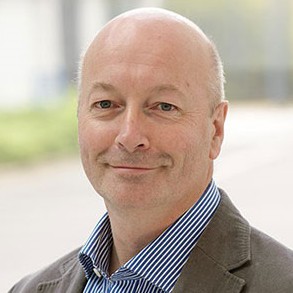
Stephen Pennington
University College Dublin
Steve is currently Professor of Proteomics at the UCD School of Medicine & Conway Institute in Dublin, Ireland. He graduated from Imperial College of Science and Technology (Imperial College London) with a joint honours degree in Chemistry and Biochemistry before completing a PhD in Biochemistry at the University of Cambridge. Steve and his research team are actively engaged in a number of collaborative proteomics projects focussed on comprehensive proteomics scale analysis of protein expression and function to support improved understanding of mechanisms of disease progression and diagnosis. They are currently focussed on the development of multiplexed protein biomarker measurements using multiple reaction monitoring mass spectrometry to support the translation of novel multiplexed blood protein biomarkers to clinical diagnostic tests.

Ruijun Tian 田瑞军
Southern University of Science and Technology, 南方科技大学
Dr. Ruijun Tian obtained his Ph.D. in analytical chemistry from Dalian Institute of Chemical Physics, Chinese Academy of Sciences in 2008 (Mentor: Dr. Hanfa Zou). He then moved to Canada for his postdoctoral training with Dr. Daniel Figeys at Ottawa Institute of Systems Biology, University of Ottawa (2008-2010) and Dr. Tony Pawson at Lunenfeld-Tanenbaum Research Institute, Mount Sinai Hospital and University of Toronto (2010-2014). He joined Department of Chemistry, Southern University of Science and Technology (SUSTech) in 2014 as an associate professor and was promoted as tenured full professor in 2020. He is also adjunct professor of School of Medicine, University of Ottawa and Shenzhen People’s hospital. His major research interest is precision medicine-oriented MS-based proteomics technology development and applications mainly in intercellular signaling of tumor microenvironment. He has published more than 70 research papers in Nature, PNAS, Angew Chem., Mol. Cell. Proteomics, Anal. Chem., etc. with H-index of 27 (Google Scholar). He received 2012 Young Investigator Award from International Association for Protein Structure Analysis and Proteomics (IAPSAP), Canadian Institutes of Health Research (CIHR) postdoctoral fellowship, and President’s Scholarship from Chinese Academy of Sciences. He was the co-chairs for 2nd Young Investigator Symposium of CNHUPO and 5th China-Canada Systems Biology Symposium. He is the editorial board member for Chinese Journal of Chromatography (Young pannel) and Frontiers in Endocrinology.

Chris W. Turck
Max Planck Institute of Psychiatry, Munich, Germany
Prof. Chris Turck is Head of Proteomics and Biomarkers at the Max Planck Institute of Psychiatry. He also holds faculty appointments in the Department of Biochemistry at the University of Munich, International Max Planck Research School of Molecular and Cellular Life Sciences. International Max Planck Research School of Translational Psychiatry and Graduate School of Systemic Neurosciences. After receiving his Ph.D. degree in Chemistry he carried out postdoctoral work at the Roche Institute of Molecular Biology. Subsequently he was recruited to the Faculty of Medicine at the University of California, San Francisco where he was Director of the Howard Hughes Medical Institute Protein Structure Laboratory and Associate Investigator at the Cardiovascular Research Institute. Prof. Turck serves on the ‘Neuroscience Steering Committee’ of the fNIH Biomarkers Consortium and is chair of the ABRF Metabolomics Research Group. He recently received President’s International Fellowship Initiative funding from the Chinese Academy of Sciences for a collaboration with the Kunming Institute of Zoology. His research efforts center on the identification of biosignatures for psychiatric disorders and the antidepressant drug response using -omics technologies to delineate affected molecular pathways. The goal is to complement imprecise clinical parameters with molecular biosignatures to improve patient diagnosis, stratification and treatment. https://www.psych.mpg.de/1495985/turck
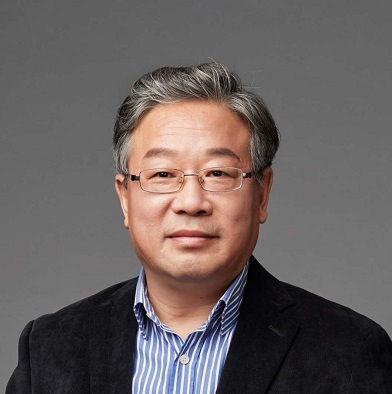
Huiru Tang 唐惠儒
Fudan University, 复旦大学
Huiru Tang Professor, Biochemistry and Molecular Biology, Fudan University. Winner of National Outstanding Youth Science Foundation. He received a bachelor's degree from Northwestern Light Industry College (now Shaanxi University of Science and Technology) in 1986 and a doctorate from London University in 1994. From 1992 to 2000, he successively served as Research Scientist, Senior Research Scientist at BBSRC Food Research Institute. From 2001 to 2005, he served as Senior Scientist in Biochemistry Department of Biomedical Engineering, Imperial College London. From 2005 to 2014, he successively served as researcher and doctoral supervisor of Wuhan Institute of Physics and Mathematics, deputy director of research department and director of Key Laboratory of Biological Magnetic Resonance Analysis of Chinese Academy of Sciences. November 2014 Fudan University Distinguished Professor.

Roman Fischer
University of Oxford
Roman Fischer is an Associate Professor and Senior Group Leader in Clinical Proteomics at the University of Oxford. He leads the Discovery Proteomics Facility at the Target Discovery Institute. RF studied Biotechnology at the Technical University Braunschweig and obtained his PhD at the Helmholtz Centre for Infection Research for the analysis of host-pathogen interactions of Listeria monocytogenes using proteomic methods (2007). After postdoctoral studies on Il-1 signalling in the laboratory of Professor Sir Philip Cohen in Dundee (Scotland), RF started to develop clinical proteomics at the University of Oxford in 2009. Since 2013 RF leads the Discovery Proteomics Facility and applies proteomic methods to a multitude of scientific questions. Currently, RF focusses his research on the development of high-throughput and spatial proteomics methods and their application to large clinical cohorts and specimen.

Roger Reddel
The University of Sydney
Professor Roger Reddel is a medical oncologist, molecular geneticist and an internationally renowned expert on cancer cell immortalisation. He is Director of Children’s Medical Research Institute (CMRI), Westmead, a Fellow of the Australian Academy of Science, and a Fellow of the Australian Academy of Health and Medical Sciences. His research career on the cellular and molecular biology of immortalisation commenced as a postdoctoral scientist (Fulbright Fellow) at the National Cancer Institute, Maryland, USA, where he improved techniques for immortalisation of human cells in vitro and made the key finding that immortalisation is necessary for malignant transformation of human cells. He returned to Australia to establish and head the Cancer Research Unit at CMRI, with a fellowship from Cancer Council NSW, which has provided major support ever since. He is internationally recognised for research on the enzyme telomerase and for discovering ALT (Alternative Lengthening of Telomeres), which together contribute to unlimited growth in >95% of cancers. His team has made additional seminal findings regarding ALT and the manner in which it is repressed in normal (non-cancer) cells, and identified a molecular marker for ALT. Overall his research aims to help develop anti-cancer treatments that would work by blocking immortalisation, and tests for detecting signs of cellular immortalisation for early detection of cancer. Professor Reddel has won numerous awards including the Ramaciotti Medal for Excellence in Biomedical Research (2007), the 2011 NSW Premier's Award for Outstanding Cancer Researcher of the Year, and the Neil Hamilton Fairley Medal of the Royal Australasian College of Physicians (2017). He was a founding member of the University of Sydney's Cancer Research Network and chaired its Translational Research Committee. He is a member of the Board of Paediatrio, which has been set up to coordinate paediatric research in NSW.
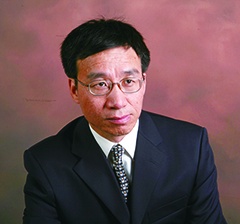
Ping Xu 徐平
National Center for Protein Sciences, Beijing, 国家蛋白质科学中心(北京)
Dr. Xu is interested in studying novel biological functions of ubiquitin chains and regulation of protein ubiquitination in the occurrence and development of liver disease by proteomics approaches. His research involves state-of-art technologies for profiling thousands of proteins and posttranslational modifications by quantitative mass spectrometry and large scale data processing.
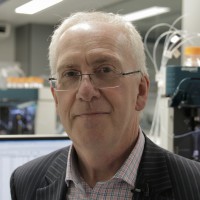
Anthony Whetton
University of Manchester
New systems biology approaches will transform biomedical research. One key strand of this new approach is proteomics/mass spectrometry. He has worked effectively with clinical colleagues in the field of haematology for many years. However, his interactions now encompass research into many other malignancies and, for example, diseases of pregnancy and the lungs, due to the development of an “outstanding” (metrics: LLR international panel who site visited in 2013) mass spectrometry/proteomics facility. He advises internationally leading clinician scientists/bioscientists on the use of mass spectrometry and proteomics in their research. This is essential; too often these complex systems biology approaches lead to failure because of poor experimental design and/or lack of awareness of the technique’s limitations. The development of new biomarkers and surrogate endpoint markers is a key requirement for clinical trials and closing the translational gap in medicine. The establishment of a platform for biomarker discovery and validation from biological fluids (more generally available than biopsy material) has been a growing theme of my research.
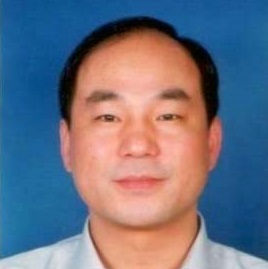
Jimin Shao 邵吉民
Zhejiang University, 浙江大学
Professor and Chair, Department of Pathology and Pathophysiology.Executive Director, Center for Cancer Research,Associate Dean, School of Basic Medical Sciences, Zhejiang University. Research: (1)Cancer-promoting inflammation and cancer stem cell plasticity. (2)Neoantigens identification and technology development for cancer immunotherapy. (3)Protein structure and function of anti-cancer therapeutic targets and novel drug discovery.
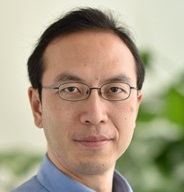
Hong Shen 沈宏
Roche Innovation Center Shanghai, 上海罗氏创新中心
Dr. Hong Shen received his B.S. from Peking University and Ph.D. from Stanford University. After 9 years working at Merck in the US, he joined Roche Innovation Center Shanghai (RICS) in 2012. Dr. Shen is now the Site Head of RICS. Dr. Shen’s experience in drug discovery includes the areas of hypertension, diabetes, thrombosis, atherosclerosis, obesity, antiviral, antibiotics, oncology, immunology, and inflammation. He has contributed to multiple clinical compounds. Dr. Shen has more than 100 publications and over 80 patent applications, and has delivered over 100 invited lectures. He is currently a Fellow of the Royal Society of Chemistry (FRSC), and a lecturer at Shanghai Jiaotong University School of Pharmacy, Tsinghua University School of Pharmaceutical Sciences, and CCDRS, Peking University. Dr. Shen is also a mentor at ShanghaiTech University, a member of the Medicinal Chemistry Committee of Shanghai Pharmaceutical Association. He is a reviewer of 18 international journals and a scientific advisor of three journals/book series.
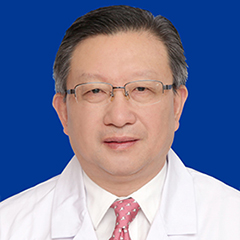
Xiujun Cai 蔡秀军
Sir Run Run Shaw Hospital, Zhejiang University, 浙江大学医学院附属邵逸夫医院
Xiujun Cai is the president of Sir Run Run Shaw Hospital of Zhejiang University and the director of both the Institute of Minimally Invasive Surgery of Zhejiang University and the Key Lab of Surgery of Zhejiang Province. He graduated from Zhejiang University School of Medicine in 1986 and got the PhD in 1992. Between 1994 and 1995, He had the fellowship in the West Virginia University Medical Center, USA.

Xiansheng Hua 华先胜
City Brain & VP, Artificial Intelligence Center, Alibaba, 阿里巴巴人工智能中心
He holds Ph.D. in Applied Mathematics from Peking University IEEE Fellow, ACM Distinguished Scientist, Leading authority in the field of visual identification and search. Served as the chairman of multiple committees for international conferences, including ACM Multimedia and IEEE ICME. Honored as a member of the MIT TR35.

Maode Lai 来茂徳
China Pharmaceutical University,中国药科大学
Professor Maode Lai graduated from the Department of Medicine of Zhejiang Medical University in 1982. He received his MS degree in medicine from Zhejiang Medical University in 1987 and his MD degree from Luebeck Medical University in Germany in 1990. He became professor in 1994. He has been adjunct professor of the University of Alberta in Canada since 2010. He was selected as a member of German National Academy of Sciences Leopoldina in 2011. He became vice-president of Zhejiang Medical University in 1996 and vice-president of Zhejiang University in 1998. He has been president of China Pharmaceutical University since 2013.
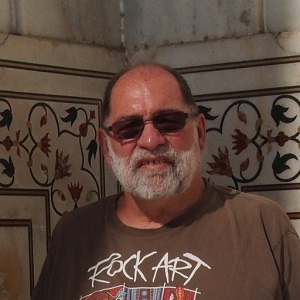
Edouard Nice
Monash University
Prof Ed Nice is currently an Adjunct Professor at Monash University where he is Head of Clinical Biomarker Discovery and Validation of Biochemistry and Molecular Biology) and a scientific advisor to the Monash Antibody Technologies Facility (MATF), for which he was director from 2009 - 2013. He also holds a Visiting Professorship at Sichuan University/West China Hospital and an Adjunct position at Macquarie University, Sydney, Australia. His long-term research interests have been in protein and peptide micropurification, biomarker discovery and validation, SPR analysis, high throughput monoclonal antibody production and validation, and clinical biomarker assay development, with a strong translational focus on colorectal cancer, especially the development of faecal proteomics.
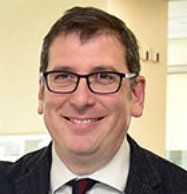
Andrea Urbani
Università Cattolica del "Sacro Cuore"
Prof. Andrea Urbani started his research experience in 1990 within the Protein Biochemistry group of Prof. Federici (Tor Vergata University, Rome). During the PhD training (1994-1998) he has been working in the Merck, Sharp and Dohme laboratories of Pomezia (IRBM P. Angelini, Rome) on the functional and structural characterisation of the NS3 serine protease from the Hepatitis C Virus. This activity has led to the filing and extension of two patents application by MSD. Upon gaining the PhD title he moved to Heidelberg (Germany) at the European Molecular Biology Laboratory (EMBL) in the Structural Biology Programme (1998-2001) where he has pursued structural and functional investigation on integral membrane protein complexes. Following this experience he moved as a visiting scientist at the German Cancer Research Centre (Deutsches Krebsforschungszentrum) in the Analitycal Protein Chemistry unit where he has dedicated most of the investigations in the proteomics area. In his scientific experience he has been involved in protein characterisation by a number of different techniques. Mass spectrometry characterisation and identification of proteins represent the light motif of the laboratory he has developed during the last ten years. He has been the President of the Italian Proteomics Association (ItPA) years 2010-2015 and President of the European Proteomics Association (EuPA) for the years 2015-present. His international publication record is represented by over 200 contributions on journal with peer review system for a total impact factor above 600, his h-index is 40 based on approx. 5103 citations (SCOPUS, Elsevier, February 2019).
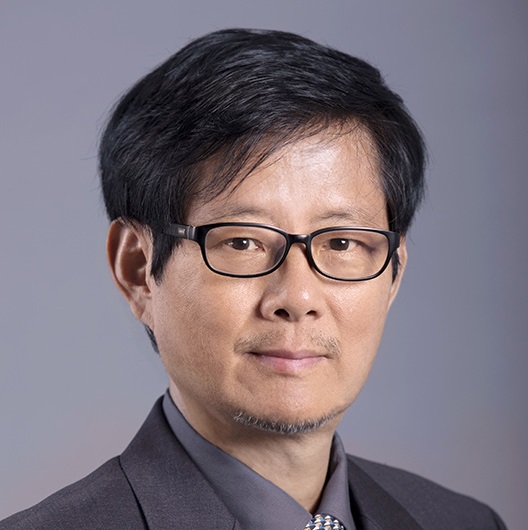
Stan Z. Li 李子青
Westlake Universisty, 西湖大学
He received his Ph.D. degree from Surrey University, UK, in 1991. He was awarded Honorary Doctorate of Oulu University, Finland, in 2013. He was the director of the Center for Biometrics and Security Research (CBSR) , Chinese Academy of Sciences, 2004~2019. He worked at Microsoft Research Asia as a Research Lead, 2000~2004. Prior to that, he was an associate professor (tenure) at Nanyang Technological University, Singapore. He joined Westlake University as a Chair Professor of Artificial Intelligence in February, 2019. His current interests include fundamental research in machine learning, data science, and applied research in multiple AI-related interdisciplinary fields (computer vision, smart sensors, life science, material science, and environmental science).
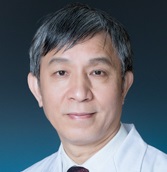
汪道文
Tongji Medical College, Huazhong University for Science & Technology
Dean of Department of Cardiology, TJH; Member of Chinese Society of Cardiology; Vice-President of Chinese Association of Cardiology in Hubei; Expert of National Cardiovascular Center, Ministry of Health; Standing Committee of Chinese Association of Pharmaceutical Biotechnology biological samples library Branch Member of American Heart Association, Member of International Society of Hypertension; Executive director of the Chinese Hypertension League Council; Expert in Expert Database of Hubei occupational health assessment; Member of second group of Hubei Medical Association Medical Malpractice Expert; Editorial Board of ISRN Cardiology; Editorial Board of Chinese Journal of Cardiovascular diseases; Associate Editor of Chinese Journal of Molecular Cardiology; Associate Editor of Journal of Internal Intensive Medicine; Editorial Board of Chinese Journal of Circulation; Editorial Board of Chinese Journal of Hypertension; Editorial Board of Journal of Clinical Cardiology and Journal of Clinical Internal Medicine; Editorial Board of Chinese Journal of Chinese Journal of Geriatric Heart Brain and Vessel Diseases; Reviewers of Regenerative Medicine, Gene Therapy, Stroke, Human Gene Therapy, Hypertension, JACC, Apoptosis, and other over ten kinds of journals.
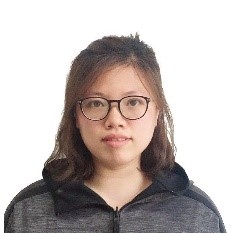
Min Huang 黄敏
Thermo Fisher Scientific
Min Huang, PhD, current senior application engineer of life science mass spectrometry in Thermo Fisher Scientific, responsible for the technique development and application support of mass spectrometry related to proteomics and structural biology
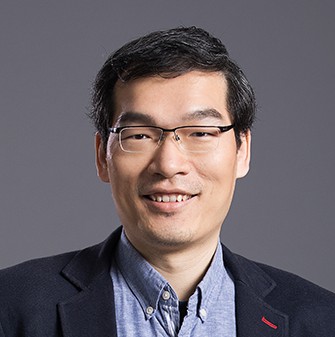
Tiannan Guo 郭天南
Westlake Universisty, 西湖大学
Tiannan GUO, Ph.D. School of Life Sciences. Tiannan received training of clinical medicine (1999-2006) in Tongji Medical College, Huazhong University of Science and Technology, and learned biology (2001-2005) in Wuhan University, China, before he moved to Singapore for PhD training in cancer proteomics (2008-2012) in the laboratories of Dr. Newman Sze in Nanyang Technological University and Dr. Oi Lian Kon in National Cancer Centre Singapore. In 2012, Tiannan started his postdoctoral training in the laboratory of Dr. Ruedi Aebersold in ETH Zurich. Tiannan moved to Sydney as the Scientific Director of ProCan, group leader of Cancer Proteome, conjoint senior lecturer in Sydney Medical School, The University of Sydney, in March 2017. Tiannan joined the Westlake Institute for Advanced Studies in August 2017 as a Tenure Track Assistant Professor.
Acknowledgements
